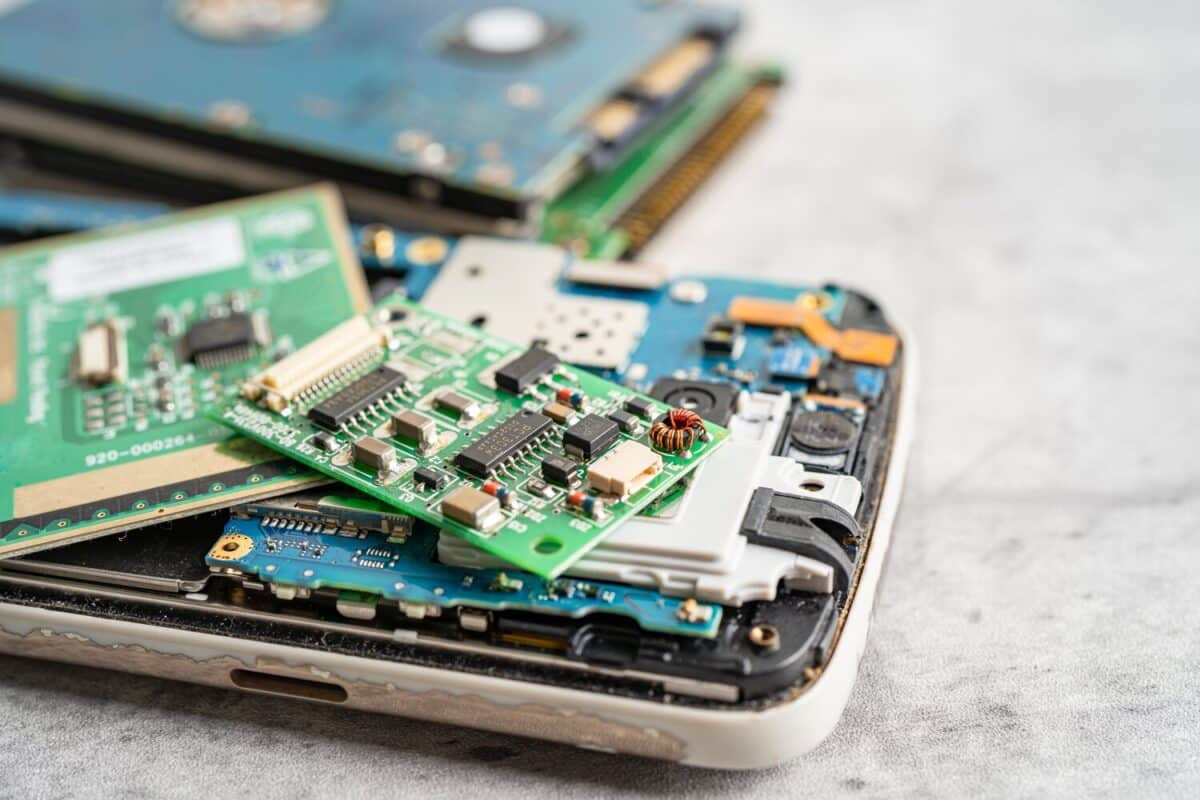E-Waste Management: How You Can Make a Difference

Electronic waste, or e-waste, refers to any electronic device that has reached the end of its useful life and is no longer used or needed. This includes televisions, computers, cell phones, and other electronic devices. It’s a growing problem, and it is essential to understand e-waste management to help save the ocean.
The Problem with E-Waste
One important environmental issue is e-waste. The United Nations estimates that the globe produces 50 million tons of e-waste annually. This garbage is frequently dumped at landfills, taking hundreds of years to degrade. Lead, mercury, and cadmium are just a few hazardous compounds released into the environment as e-waste breaks down.
These chemicals can contaminate the soil and water, leading to health problems for humans and wildlife. They can also end up in the ocean, harming marine life and contributing to the growing problem of ocean pollution.
The Importance of E-Waste Management
E-waste management is collecting, recycling, and disposing of electronic waste in an environmentally responsible manner. It is crucial for several reasons:
Environmental and Marine Life Protection
The most crucial reason for e-waste management is environmental protection. Electronic devices contain hazardous materials like lead, mercury, and cadmium. If these materials are not disposed of properly, they can leach into the soil and water, causing pollution and environmental harm.
E-waste management can reduce the environmental impact of electronic waste by ensuring that hazardous materials are correctly disposed of.
Resource Conservation
Electronic devices contain valuable materials like gold, copper, and aluminum, which can be recovered and reused. E-waste management can help conserve natural resources by recovering these materials and reducing the need for new resource extraction.
Regulatory Compliance
Many countries have regulations in place to govern the disposal of e-waste. Proper e-waste management can help businesses comply with these regulations and avoid legal repercussions.
Data Protection
Electronic devices often contain sensitive personal, financial, and business data. Improper disposal of these devices can result in data breaches and identity theft. Proper management can help ensure that sensitive information is erased or destroyed before disposal.
Job Creation
E-waste management can create job opportunities, particularly in the recycling and refurbishing sectors. Recycling can create jobs in collecting, sorting, and processing electronic waste. Refurbishing electronic devices can create jobs in repairing and upgrading electronic devices.
Revenue Generation
Recycling e-waste can generate revenue by selling recycled materials like gold, copper, and aluminum. The income generated from the e-waste recycling center can be reinvested in further e-waste management efforts.
Corporate Social Responsibility
E-waste management can be essential to a company’s corporate social responsibility (CSR) efforts. Proper management can demonstrate a company’s commitment to environmental and marine life protection, resource conservation, and ethical business practices.
How to Manage E-Waste
There are several ways to manage e-waste responsibly:
Reduce
The best way to manage e-waste is to reduce it in the first place. This means using electronics for as long as possible, repairing them when they break, and avoiding buying new devices unless necessary.
Reuse
When electronics are no longer needed, they can often be reused. For example, old cell phones can be donated to organizations that provide them to needy people. Computers can be refurbished and donated to schools or other organizations.
Recycle
When electronics can no longer be reused, they should be recycled. Many manufacturers offer electronics recycling programs for their products, and there are also independent electronics recycling facilities that accept e-waste.
Dispose
If electronics cannot be reduced, reused, or recycled, they should be disposed of properly. This means taking them to a hazardous waste facility or other authorized e-waste recycling center.
Conclusion
E-waste management is essential to protect marine life from the hazardous effects of electronic waste. Proper management helps to reduce the risk of contamination of the marine environment. Finally, increasing the public’s awareness about the potential impacts of e-waste on marine life and the environment is also essential. Overall, proper e-waste management is crucial to protect the ocean from the hazardous effects of electronic waste.
Green Atlanta Recycling provides sustainable and cost-effective solutions for recycling in Atlanta. We help businesses and residential customers practice responsible electronic disposal, reduce electronic waste, prevent hazardous materials from polluting the ocean, and conserve natural resources. Contact us now, and let’s protect marine life together!